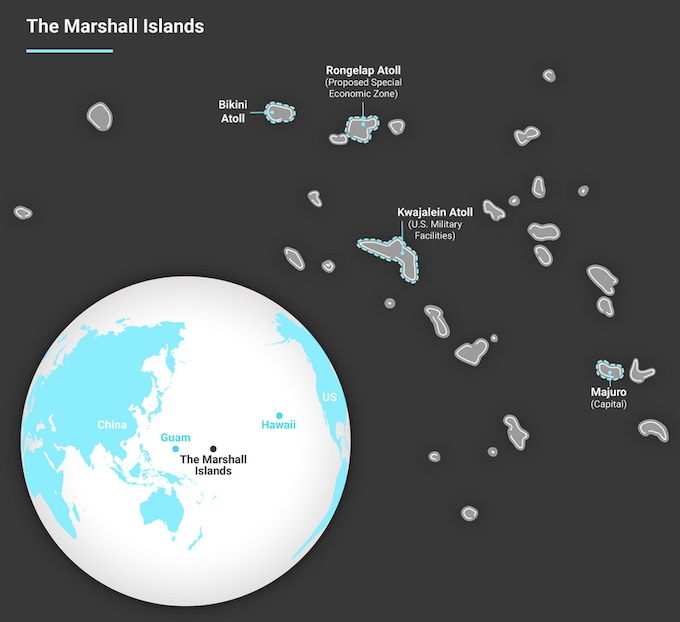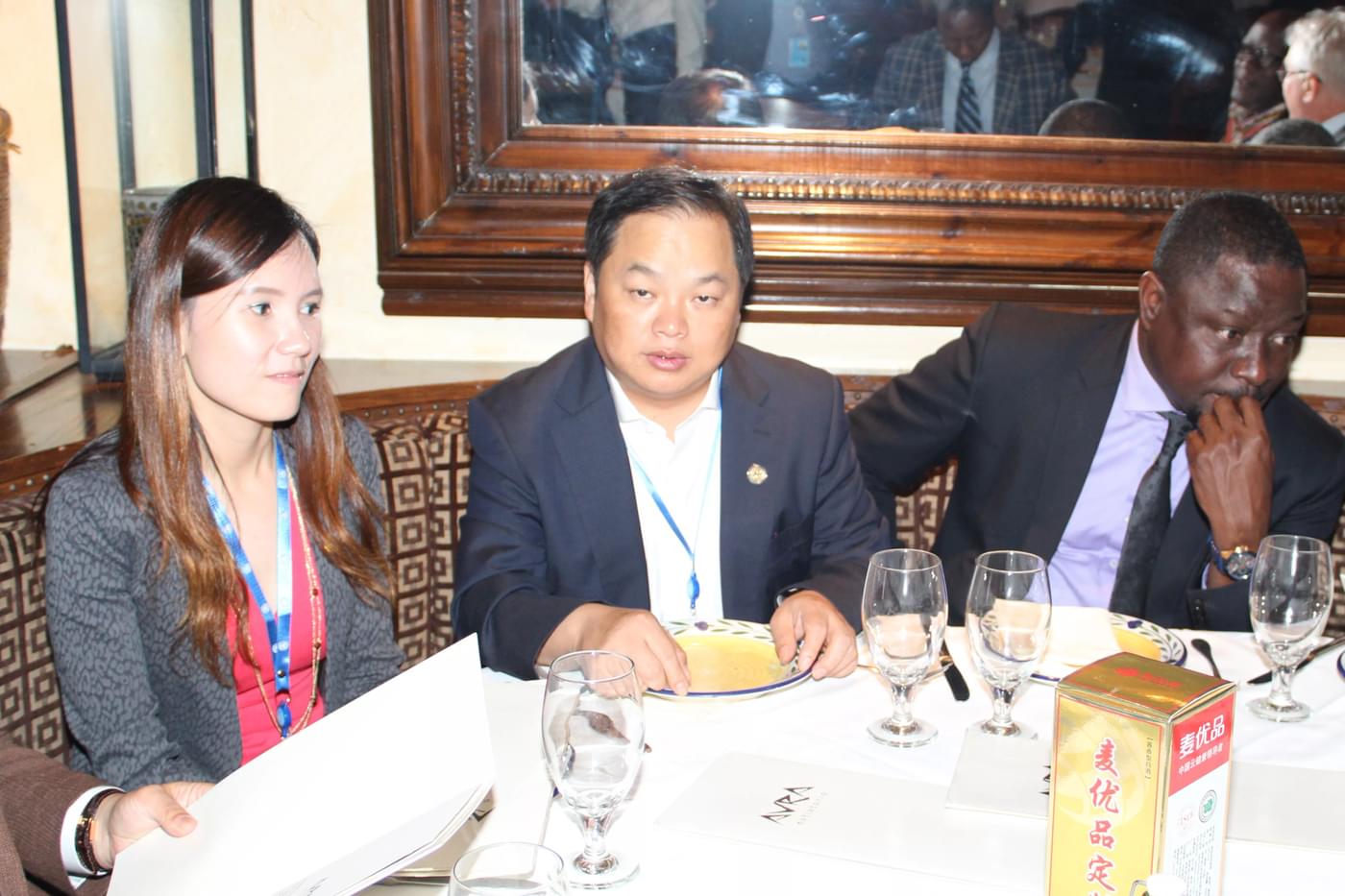By Aubrey Belford, Kevin G. Hall and Martin Young
A pair of Chinese scam artists wanted to turn a radiation-soaked Pacific atoll into a future metropolis. They ended up in an American jail instead.
How they got there is an untold tale of international bribery and grifting that stretched to the very heart of the United Nations.
The stakes could scarcely have been higher for Hilda Heine, the former president of the Marshall Islands.
A new OCCRP investigation reveals details of how Chinese-born fraudsters Cary Yan and Gina Zhou paid more than US$1 million to UN diplomats to gain access to its headquarters in New York, before embarking on a controversial plan to set up an autonomous zone near an important US military facility in the Pacific Ocean.
For years, Hilda Heine’s remote archipelago nation of just 40,000 people was best known to the world for Cold War nuclear testing that left scores of its islands poisoned.
Sitting in the centre of the Pacific Ocean, the country was a strategic but forgotten US ally.
But the arrival of a couple of mysterious strangers threatened to change all that. With buckets of cash at their disposal, the Chinese pair, Cary Yan and Gina Zhou, had grand plans that could have thrust the Marshall Islands into the growing rivalry between China and the West, and perhaps fracture the country itself.
Public controversy
First proposed in 2017, while Heine was still president, Yan and Zhou’s idea raised public controversy.
With backing from foreign investors, the couple planned to rehabilitate one irradiated atoll, Rongelap, and turn it into a futuristic “digital special administrative region.”
The new city of artificial islands would include an aviation logistics center, wellness resorts, a gaming and entertainment zone, and foreign embassies.
Thanks in part to the liberal payment of bribes, Yan and Zhou had managed to gain the support of some of the Marshall Islands’ most powerful politicians. They then lobbied for a draft bill that would have given the proposed zone, known as the Rongelap Atoll Special Administrative Region (RASAR), its own separate courts and immigration laws.
Heine was opposed. The whole thing reeked of a Chinese effort to gain influence over the strategically located Marshall Islands, she told OCCRP.

The plan was unconstitutional and would have created a virtually “independent country” within the Marshall Islands’ borders, she said.
The new Chinese investor-backed zone would also have occupied a geographically sensitive spot just 200 km of open water away from Kwajalein Atoll, where the US Army runs facilities that test intercontinental ballistic missiles and track foreign rocket launches.
Became a target
But when President Heine argued against the draft law, she became a target herself. In November 2018, pro-RASAR politicians backed by Yan and Zhou pushed a no-confidence motion to remove her from power.
She survived by one vote.
Even then, the president said she had no idea who this influential duo really were. Although they seemed to be Chinese, they carried Marshall Islands passports, which gave them visa free access to the United States. Nobody seemed to know how they had obtained them.

“We looked and looked and we couldn’t find when and how they got [the passports],” Heine said. “We didn’t know what their connections were or if they had any connections with the Chinese government.
“But of course we were suspicious.”
The plan came to an abrupt end in November 2020, when Yan and Zhou were arrested in Thailand on a US warrant. After being extradited to face trial in New York, they pleaded guilty to a single count of conspiracy to bribe Marshallese officials.
Both were sentenced earlier this year. Zhou was deported to the Marshall Islands shortly after her sentencing, while Yan is due for release this November.
But although the federal case led to a brief burst of media attention, it left key questions unanswered.
Who really were Yan and Zhou? Who helped them in their audacious scheme? Were they simply crooks? Or were they also working to advance the interests of the Chinese government?
OCCRP spent nearly a year trying to find answers, conducting interviews around the world and poring through thousands of pages of documents.
What reporters uncovered was a story more bizarre — and with far broader implications — than first expected.
Aubrey Belford, Kevin G. Hall and Martin Young are investigative writers for the Organised Crime and Corruption Reporting Project (OCCRP). Republished with permission.
Article by AsiaPacificReport.nz





